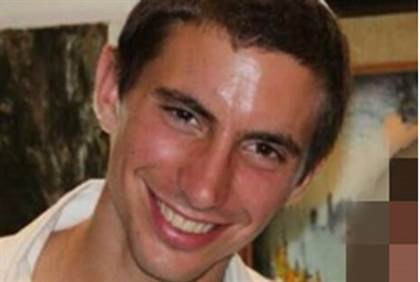[Warning: This post is not for the faint of heart.]
I’m not going to begin this post by saying that I’m praying for the return of the missing IDF soldier, Hadar Goldin.
I’m not. (But read on.)
Immediately when we heard of his abduction by Hamas terrorists, calls for prayer on Facebook were louder than the Muslim calls for prayer that come through the Palestinian mosques happily annoying their Jewish neighbors.
This is also what happened when Gilad, Naftali and Eyal were abducted. Everyone prayed. Everyone doled out their Hebrew names so we could say Tehillim, Psalms, in their honor.
Looking back, how useless were those prayers? Not only were the boys not returned, but they were already dead when people were praying for them! People were praying for corpses, and no one knew it at the time.
Prayer is a natural reaction to the helplessness we feel when tragedy strikes. Prayer makes us feel we’re doing something. It connects us with the fate of the victim, which is noble and kind. Collective prayer causes unity, which could be valuable in creating change.
But prayer is usually just as useless as the “hope” enshrined in Israel’s anthem. It’s passive. It’s mystical. It’s sentimental.
If you want to make an effective prayer, then don’t make just say, “God, safeguard him and bring him back.” Hamas has cut off any communication lines with the God of Israel. At best, state an intention: I am thinking about this soldier and I ask God for guidance on what I can do.
The problem with this prayer is that you may draw a blank. There may be nothing you can do to because it’s up to the government and army to rescue him, if he’s even alive. We little people who have prayer as the only recourse have no say in the type of operations that could and should bring him back. We may yet again be praying for a corpse.
So I say when such abductions or tragedies occur, don’t pray. There are other things you can do:
1. Think. Thinking is much more active and much more difficult than praying. The challenge with thinking is that you may have unpleasant thoughts, like: he may be dead. Or, the Israeli government may trade him for more terrorists. But this unpleasant thought may drive you to the next step, which is:
2. Action. Take an action that might play a role in his return, assuming he’s alive. You might pressure the government. You might write to Congress. You might do something for his family. You might do something for his memory. You might start clarifying your views about the war. You might write an op-ed. You might start studying political science so that you can become a member of Knesset to prevent policies that embolden Israel’s enemies.
If prayer does not lead you to concrete action, then it is an exercise in noble self-indulgence that will most likely not have any effect on the fate of Hadar, just as prayer did not affect the fate of the three precious teens.
Now, what action are you going to take? Share your ideas for concrete action in the comments section.


